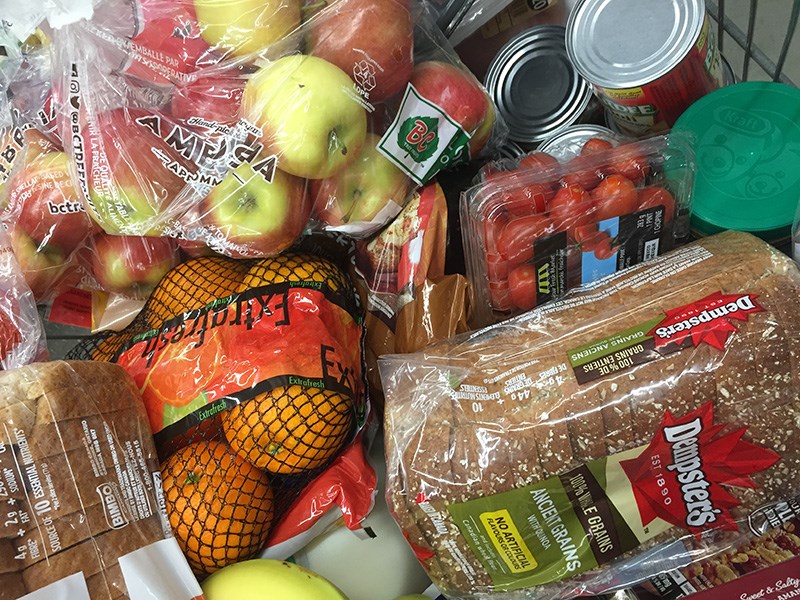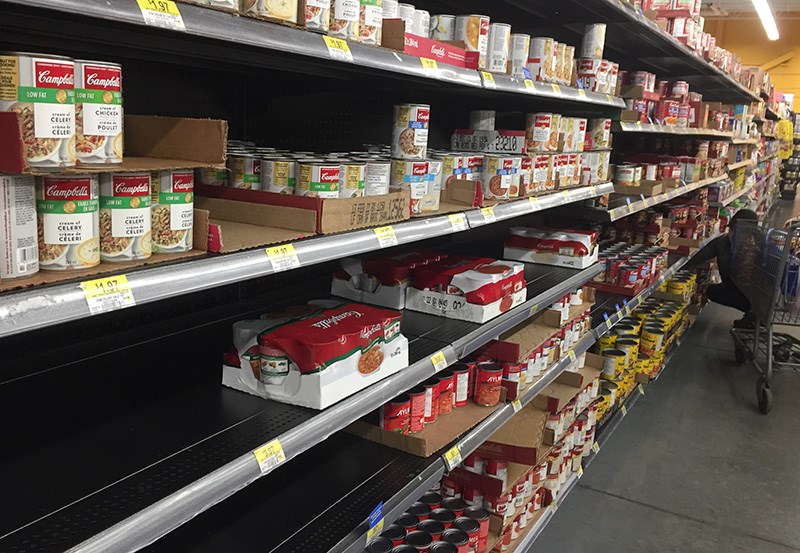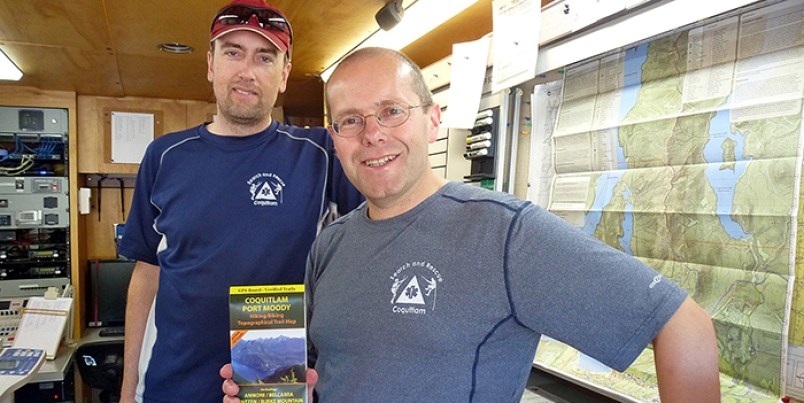Don’t be paranoid but be prepared.
That’s the advice of Steve Chapman, who as a member of the Coquitlam Search and Rescue volunteer team, advises people on the 10 essentials they need to carry when hiking in the wild.
Now he’s got his own essentials in case he has to quarantine himself for 14 days because of the COVID-19 coronavirus.
Chapman made the effort to put aside a couple of boxes of canned goods — including fruit and vegetables, rice and vitamins — and has the capability of filtering his own water in an emergency.
He’s advising people to plan ahead for what could be a long battle to combat the disease, which has now spread to dozens of countries with more than 90,000 cases and more than 3,000 deaths, including nine in Washington State.

“It’s not about being totally paranoid but it’s taking sensible realistic measures to help minimize the spread. The whole hand-washing thing and coughing into the sleeve, and, if you are coughing already, you shouldn’t be out,” he told The Tri-City News this week.
Chapman’s advice is similar to comments made by B.C.’s provincial health officer when she advised people to start taking measures in case of community spread of the virus.
Dr. Bonnie Henry said people should start to prepare: including planning for what to do if you have to stay home from work or keep your kids home from school to stop the spread of coronavirus.
Canada’s top doc, meanwhile, is also advising Canadians to change habits to avoid exposure to COVID-19 and to purchase dried and canned goods and toiletries, such as hand sanitizer, and medicines.
Dr.Teresa Tam, the Chief Public Health Officer, said via Twitter that rather than hoarding, people should simply purchase a few extra things when they grocery shop.
4/7 ✅Gradually fill your cupboards: Add a few extra items to your cart every time you grocery shop to build up your household store. Look for non-perishable, easy-to-prepare foods like dried pasta and sauce and canned soup, vegetables and beans. #COVID19 #coronavirus
— Dr. Theresa Tam (@CPHO_Canada) March 4, 2020
Similarly, Chapman’s reason for advising people to stock up on food that will get them through two weeks of isolation is to prevent spreading disease to other people, especially those who are elderly or have preconditions.
“It’s a community thing. Everybody’s got to step up and try to stop the spread of disease so it doesn’t hit that target group.”
To that end, Chapman recently turned down an opportunity to speak to a group of elderly people because of concerns that if he did contract the virus, he could pass it on without realizing, putting people at risk.
“I know it’s not in the community now, it could be, and it’s just too big a risk to take,” he said.
If he feels ill, Chapman said, he plans to stay home for the required 14 days to make sure he doesn’t pass anything on to anyone else.
“The responsible thing to do is to put yourself in quarantine and limit the spread of this.”
Key to that is making sure you have essentials on hand, such as your medications, and any other things you might need if you weren’t able to get out in the community to grocery shop.

Others are taking similar precautions, judging by a few gaps on store shelves in the Port Coquitlam Walmart, where canned beans and soup, appear to be popular items, and many shoppers appeared to be stocking up on toilet paper.
And in one instance, someone in Coquitlam posted on Craiglist that they are selling a six-roll pack of toilet paper for $50.
Chapman cautions against such panic buying. But at the same time, he says, be smart and be prepared.



